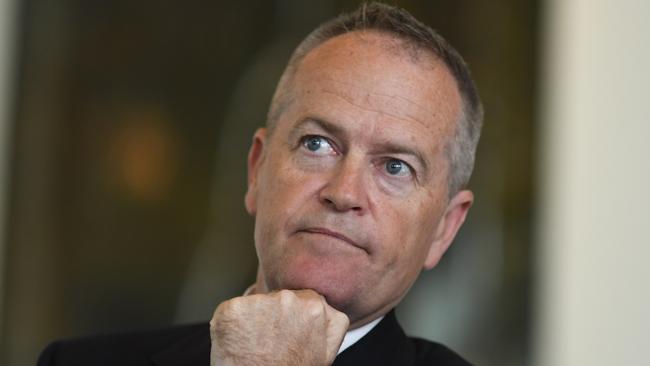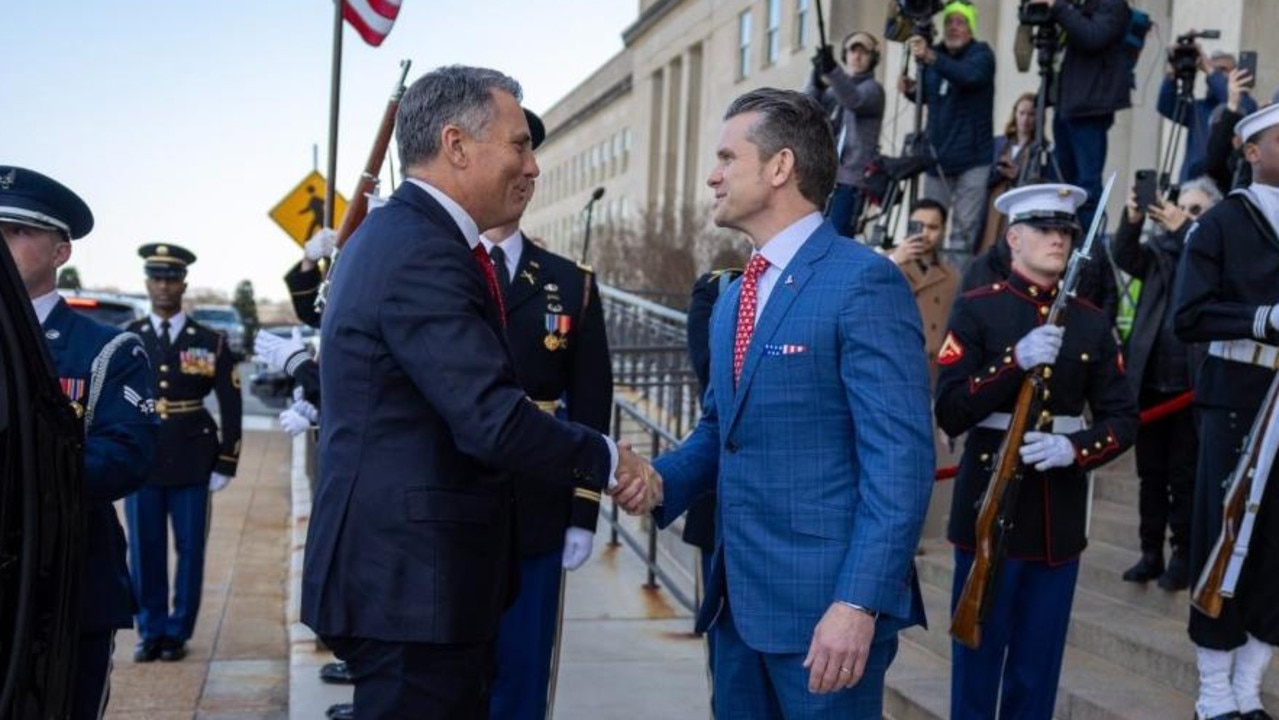Bill Shorten admits to poor messaging on coal
Bill Shorten has delivered a mea culpa on coal, conceding that Labor’s climate change policies made coalminers feel their jobs were at risk.

Bill Shorten has delivered a mea culpa on coal, conceding that Labor’s climate change policies he took to the May election made coalminers and other blue-collar workers feel their jobs were at risk.
The former Labor leader’s recognition that the party’s messaging was wrong came as Anthony Albanese declared it was not up to him to endorse the construction of new coalmines in Australia.
The Opposition Leader, in Tasmania on Wednesday after Labor suffered a 1.4 per cent statewide swing against it on polling day, backed Australian coal exports and the jobs the sector created but said it was up to the market to decide whether new coalmines were a good idea.
Opposition climate change and energy spokesman Mark Butler also joined Mr Albanese in focusing on coal exports, saying the sector’s future would be determined by actions overseas and not by the Australian government.
Mr Shorten, who has already acknowledged Labor was perceived as being anti-jobs at the election in the battleground states of Queensland and Western Australia, said confused messages meant the party failed to look strong on climate change action or back manual jobs.
“In making the case for action on climate change, some Australians and people in Queensland in coal felt that was at the expense of jeopardising their jobs. Labor will always be a party that supports full employment and blue-collar jobs,” Mr Shorten said.
“What happened is in the election for some people it became ‘either you’re for climate change or you’re for those (blue-collar) jobs’ and Labor did get the messaging wrong in that we allowed that binary conflict to dominate over the need to take real action on climate change and create good, ongoing jobs in the future.”
Writing in The Australian on Thursday, Mr Butler said other nations must lift their ambition around emissions reduction in order to meet Paris Agreement commitments to keep global warming well below 2C. As one of the wealthiest countries that produced more emissions per person than any other OECD nation, however, Australia also had a responsibility to take action.
“The future of Australia’s export coalmines and LNG plants won’t be determined by decisions taken in Canberra,” Mr Butler said. “These are private operations whose future will be shaped by decisions taken in Beijing, Tokyo, New Delhi and the capitals of our other trading partners, as well as by the pace of technological innovation in industries like steelmaking.
“The responsibility of Australian governments is to be honest with the community about these issues and alive to the need to support regions that will be affected by decisions taken overseas … It’s an inescapable fact: to meet the commitments of the Paris Agreement, the world needs to transition off fossil fuels.”
Citing the energy industry’s own data, Mr Butler said under the Paris Agreement thermal coal demand would plummet by 40 per cent and coking coal by 30 per cent by 2030. Mr Butler’s position contrasts with opposition resources spokesman Joel Fitzgibbon, who said the International Energy Agency’s prediction of a surge in Australian coal exports driven by India and Southeast Asia would provide good opportunities for mining in the Galilee Basin.
Mr Shorten as Labor leader promised voters a 45 per cent emissions reduction target by 2030 and equivocated over Adani’s Carmichael coalmine before and during the election campaign. Labor’s post-election review found ambiguous language on the project combined with some anti-coal rhetoric — plus the Coalition’s campaign associating Labor with the Greens in voters’ minds — devastated the party’s support in the coalmining communities of regional Queensland and the Hunter Valley in NSW.
Following a week in which Mr Albanese toured central Queensland, to reconnect with blue-collar workers, the Opposition Leader would not be drawn on Labor’s position on the construction of new coalmines but suggested there should be no impediment if they passed the proper processes.
“The government doesn’t build coalmines,” Mr Albanese said. “They go through the environmental approval processes. Once approved, the mines can go ahead. The issue of coal will depend upon demand and Australia exporting coal doesn’t create demand. That demand comes from international partners … So, I’m pleased in terms of jobs being created.”


